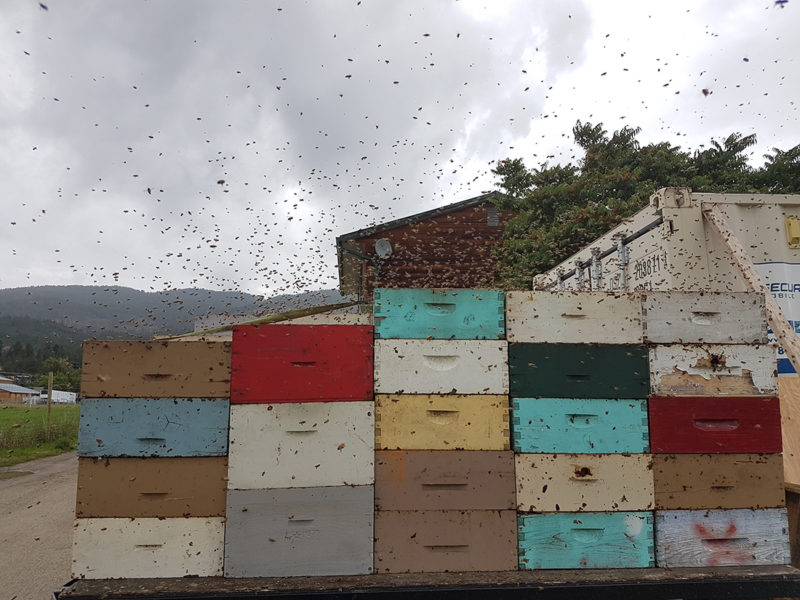BC beekeepers may not be able to import enough bees to replenish hives lost through the winter thanks to flight restrictions intended to halt the spread of COVID-19.
“We were able to get some pallets of bees in from New Zealand at the beginning of March,” says Stan Reist of Flying Dutchman Apiary in Nanaimo and BC’s representative on the Canadian Honey Council. “One or two pallets of bees can be added to the cargo section of a commercial flight. But when Air Canada stopped commercial flights [on March 23], we lost our air cargo services.”
Reist says that dedicated cargo planes are running, but they don’t take live animals.
“The stock is available,” he says. “Both New Zealand and California have told us they have the bees. We just can’t get them here.”
He says the bees could be shipped by parcel courier, but it’s an unreliable delivery method.
It is difficult to know how large the shortfall will be. While hives in the Lower Mainland are active with the warmer temperatures, beekeepers in northern BC have not yet opened up their hives.
“We just don’t know how many bees we will need,” says Reist. “We don’t know if there will be a shortage of pollinators.”
However, he notes that beekeepers across Western Canada cancelled orders for about 16,000 packages when Air Canada began scaling back commercial flights.
Alberta, a key source of the hives that pollinate BC blueberries and raspberries, reported colony losses of 29% last spring. The surviving colonies start their season in BC and bee numbers typically double before the colonies head back to Alberta to pollinate canola.


 BC farmers markets go online
BC farmers markets go online